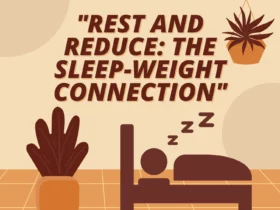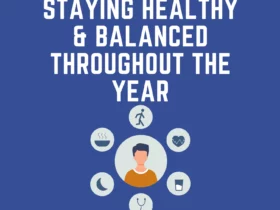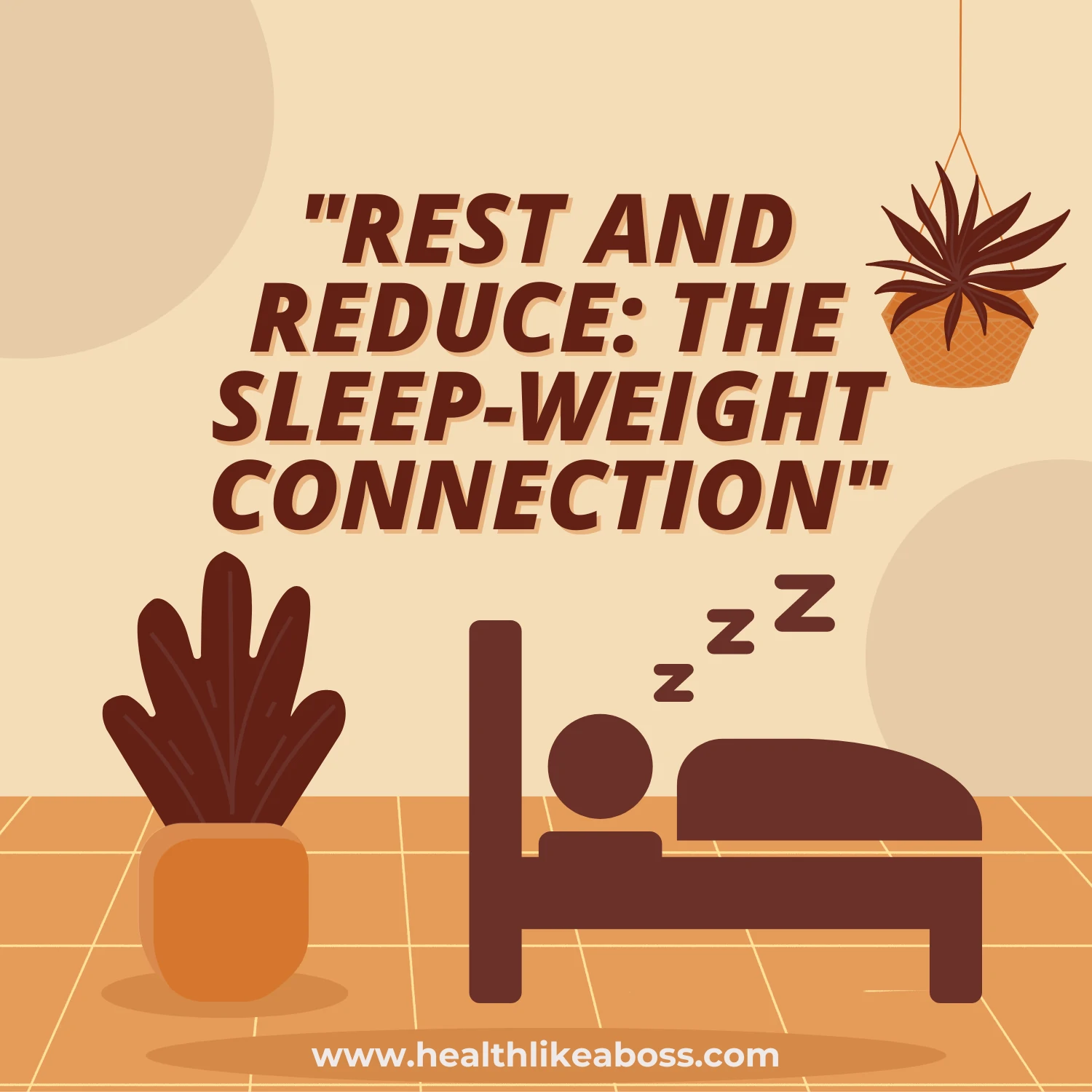In the pursuit of a healthy lifestyle, we often focus on dietary choices and exercise routines to achieve our weight loss goals. However, one crucial aspect that is often overlooked is sleep. The fascinating link between sleep and weight has been increasingly studied and is now recognized as a vital factor in managing body weight and overall well-being. Welcome to “Rest and Reduce: Unraveling the Powerful Sleep-Weight Connection,” where we delve into the science behind how sleep impacts our weight, metabolism, and hunger hormones. In this comprehensive article, we will explore the effects of sleep deprivation on appetite regulation, metabolism, and weight gain, as well as provide practical tips to optimize your sleep habits to support your weight loss journey. Let’s embark on this enlightening journey into the realm of sleep and weight to uncover the transformative power of restful slumber in achieving a healthier and more balanced life.
The Science Behind Sleep and Weight: Hormonal Impact
Delve into the intricate interplay between sleep and the hormonal regulation of appetite, specifically focusing on the hormones leptin and ghrelin. Understand how sleep deprivation disrupts this balance and leads to increased cravings and overeating.
Metabolism Matters: How Sleep Influences Caloric Expenditure
Explore the connection between sleep duration and metabolic rate. Learn how inadequate sleep can slow down metabolism and hinder your body’s ability to burn calories effectively.
Stress and Sleep: Breaking the Vicious Cycle
Uncover the role of stress in sleep disturbances and weight gain. Discover relaxation techniques and sleep-promoting practices that can help break the vicious cycle of stress-induced sleep disruption and weight gain.
Sleep Quality vs. Quantity: Striking the Right Balance
Understand the importance of both sleep quality and quantity in weight management. Learn about the factors that impact sleep quality and practical tips to improve your sleep hygiene.
Circadian Rhythms: Syncing Sleep and Weight
Explore the connection between our internal body clocks (circadian rhythms) and weight regulation. Discover how aligning your sleep-wake schedule with natural rhythms can positively influence your weight.
Sleep Deprivation and Late-Night Eating: The Midnight Snack Trap
Examine the relationship between sleep deprivation and late-night eating behaviors. Learn strategies to curb nighttime snacking and create a balanced eating schedule that aligns with your sleep routine.

Sleep and Exercise Synergy: Supporting Weight Loss Goals
Understand how sleep and exercise form a symbiotic relationship in supporting your weight loss efforts. Learn how quality sleep enhances exercise performance and post-workout recovery.
Optimizing Sleep for Weight Management: Practical Tips
Implement evidence-based sleep strategies to improve sleep quality and duration. From creating a restful sleep environment to adopting a consistent sleep schedule, these tips will optimize your slumber.
Mindful Sleep Practices: Embracing Relaxation and Restoration
Explore mindfulness and relaxation techniques that promote restful sleep and reduce stress, contributing to overall well-being and weight management.
Sleep as Self-Care: Prioritizing Rest for Health
Learn the importance of prioritizing sleep as an essential form of self-care. Understand that investing in restful sleep is an act of nurturing your body and mind, leading to improved weight and overall health.
Frequently Asked Questions (FAQs)
How does sleep affect appetite and food cravings?
Sleep deprivation disrupts the hormonal balance of leptin and ghrelin, leading to increased appetite and cravings for high-calorie foods.
Can poor sleep lead to weight gain?
Yes, inadequate sleep has been linked to weight gain and an increased risk of obesity due to its impact on appetite regulation and metabolic rate.
Can stress and anxiety affect sleep and weight gain?
Yes, stress and anxiety can disrupt sleep patterns and contribute to weight gain, as stress hormones can affect hunger regulation and lead to emotional eating.
How can I improve my sleep quality to support weight management?
Practice good sleep hygiene, create a relaxing bedtime routine, limit screen time before bed, and maintain a consistent sleep schedule to improve sleep quality.
How does exercise impact sleep and weight management?
Regular exercise can improve sleep quality and duration, which, in turn, supports weight management efforts.
















Leave a Reply